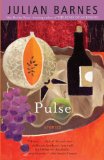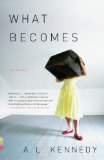Summary | Excerpt | Reviews | Beyond the book | Read-Alikes | Genres & Themes | Author Bio

Stories
by Colm ToibinFrom the internationally celebrated author of Brooklyn and The Master, and winner of the International IMPAC Dublin Literary Award, comes a stunning new book of fiction.
In the captivating stories that make up The Empty Family, Colm Tóibín delineates with a tender and unique sensibility, lives of unspoken or unconscious longing, of individuals often willingly cast adrift from their history. From the young Pakistani immigrant who seeks some kind of permanence in a strange town, to the Irish woman reluctantly returning to Dublin and discovering a city that refuses to acknowledge her long absence, each of Tóibín's stories manage to contain whole worlds: stories of fleeing the past and returning home, of family threads lost and ultimately regained.
Like Tóibín's celebrated novels, and his previous short story collection, Mothers and Sons, reviewed on the front page of the New York Times Book Review, The Empty Family will further confirm Tóibín's status as "his generation's most gifted writer of love's complicated, contradictory power." (Los Angeles Times)
The Empty Family is a haunting collection of nine short stories that speaks to the connections we make with both people and places. It explores the idea that recognizing and acknowledging the profound influence both these aspects have on us leads us to be content with who we are. The high bar of expectation set by Tóibín's previous books is met if not surpassed by this work. Once again we are given the gift of wonderful writing, not only because of the journeys we are taken on but the way in which we travel...continued
Full Review
 (732 words)
(732 words)
(Reviewed by BJ Nathan Hegedus).

Born in New York City, Henry James spent forty years living ...

If you liked The Empty Family, try these:

by Julian Barnes
Published 2012
After the best-selling Arthur & George and Nothing to Be Frightened Of, Julian Barnes returns with fourteen stories about longing and loss, friendship and love, whose mysterious natures he examines with his trademark wit and observant eye.

by A.L. Kennedy
Published 2011
Powerful and funny, intimate and profound, the stories in What Becomes capture the spirit of our times with dark humor, poignant hopefulness, and brilliant evocation of contemporary social and spiritual malaise.
We must believe in luck. For how else can we explain the success of those we don't like?
Click Here to find out who said this, as well as discovering other famous literary quotes!